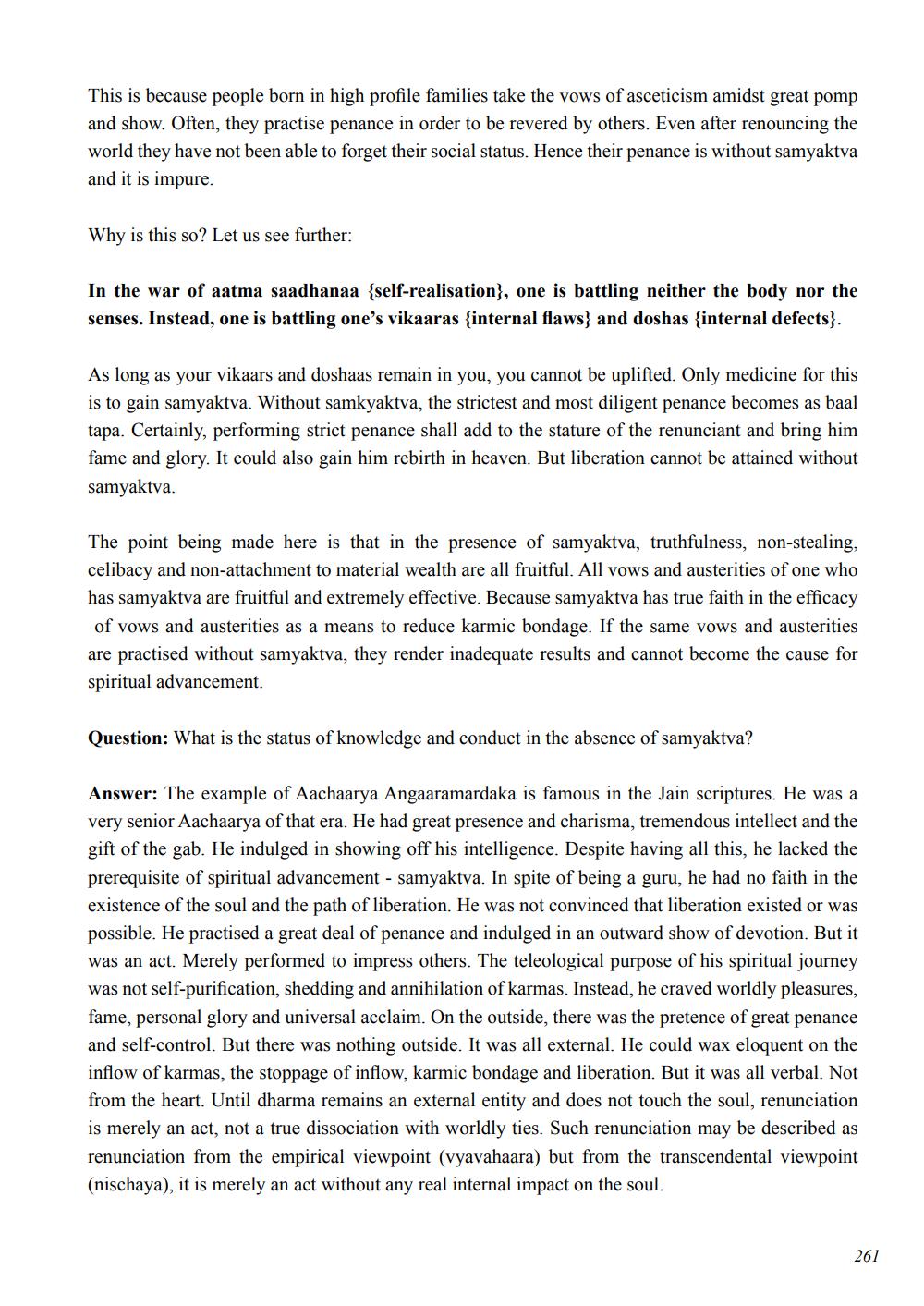________________
This is because people born in high profile families take the vows of asceticism amidst great pomp and show. Often, they practise penance in order to be revered by others. Even after renouncing the world they have not been able to forget their social status. Hence their penance is without samyaktva and it is impure.
Why is this so? Let us see further:
In the war of aatma saadhanaa {self-realisation), one is battling neither the body nor the senses. Instead, one is battling one's vikaaras {internal flaws and doshas {internal defects}.
As long as your vikaars and doshaas remain in you, you cannot be uplifted. Only medicine for this is to gain samyaktva. Without samkyaktva, the strictest and most diligent penance becomes as baal tapa. Certainly, performing strict penance shall add to the stature of the renunciant and bring him fame and glory. It could also gain him rebirth in heaven. But liberation cannot be attained without samyaktva.
The point being made here is that in the presence of samyaktva, truthfulness, non-stealing, celibacy and non-attachment to material wealth are all fruitful. All vows and austerities of one who has samyaktva are fruitful and extremely effective. Because samyaktva has true faith in the efficacy
of vows and austerities as a means to reduce karmic bondage. If the same vows and austerities are practised without samyaktva, they render inadequate results and cannot become the cause for spiritual advancement.
Question: What is the status of knowledge and conduct in the absence of samyaktva?
Answer: The example of Aachaarya Angaaramardaka is famous in the Jain scriptures. He was a very senior Aachaarya of that era. He had great presence and charisma, tremendous intellect and the gift of the gab. He indulged in showing off his intelligence. Despite having all this, he lacked the prerequisite of spiritual advancement - samyaktva. In spite of being a guru, he had no faith in the existence of the soul and the path of liberation. He was not convinced that liberation existed or was possible. He practised a great deal of penance and indulged in an outward show of devotion. But it was an act. Merely performed to impress others. The teleological purpose of his spiritual journey was not self-purification, shedding and annihilation of karmas. Instead, he craved worldly pleasures, fame, personal glory and universal acclaim. On the outside, there was the pretence of great penance and self-control. But there was nothing outside. It was all external. He could wax eloquent on the inflow of karmas, the stoppage of inflow, karmic bondage and liberation. But it was all verbal. Not from the heart. Until dharma remains an external entity and does not touch the soul, renunciation is merely an act, not a true dissociation with worldly ties. Such renunciation may be described as renunciation from the empirical viewpoint (vyavahaara) but from the transcendental viewpoint (nischaya), it is merely an act without any real internal impact on the soul.
261




